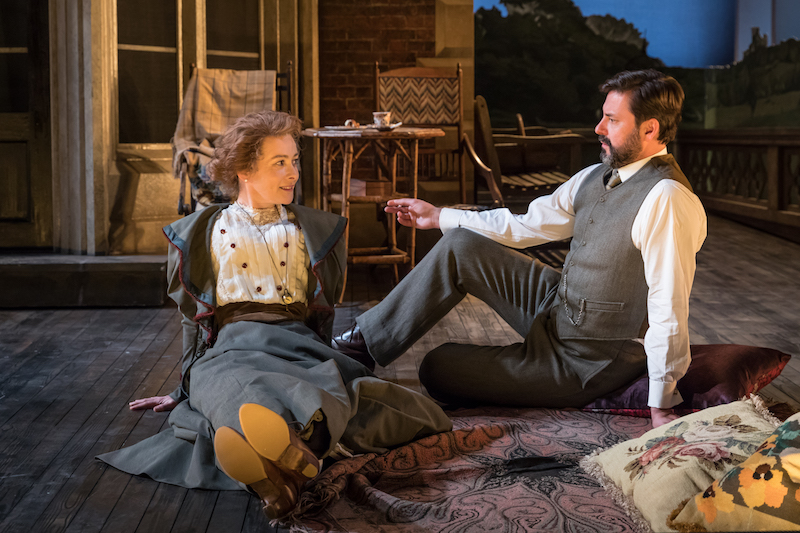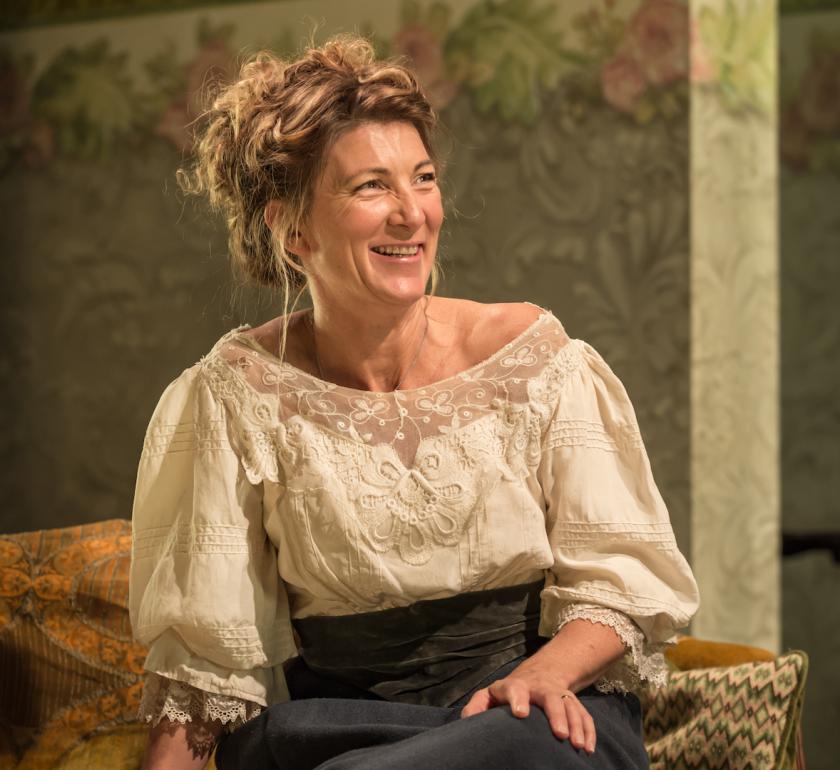In a rather clever wheeze, Dominic Dromgoole, former artistic director of Shakespeare's Globe – who therefore knows a thing or two about historically accurate stagings – has established Classic Spring, a new company dedicated to celebrating work by “proscenium playwrights” and staging their plays in the theatres they were written for. Its first year-long season is devoted to Oscar Wilde and opens with a star-stuffed A Woman of No Importance, directed by Dromgoole.
Wilde's play, written in 1893 and staged in a CJ Phipps beauty that opened in 1870, deals with the hypocrisy (sadly not confined to the Victorian age) that women are either saints or sinners – a convenient trope for men, as it keeps women in their place while at the same time allowing them to behave as they jolly well please (I won't labour the point about recent events in the White House and Hollywood).
The titular woman is Mrs Arbuthnot (Eve Best), who describes herself as a widow but is in fact a single mother who has raised her son, Gerald (Harry Lister Smith), alone after his father, George Harford (Dominic Rowan, pictured below with Emma Fielding) refused to marry her. She left him, taking Gerald with her, changed her name and moved to the country. But 20 years on, fate has brought them together as the once impecunious George is now the rich and successful Lord Illingworth, politician and legendary ladies' man, who unwittingly takes on Gerald as his assistant. The two men are at a house party thrown by Lady Hunstanton (Anne Reid) who, again unwittingly, has invited Mrs Arbuthnot to come along, and the events of the evening reveal the truth about their relationship.
But 20 years on, fate has brought them together as the once impecunious George is now the rich and successful Lord Illingworth, politician and legendary ladies' man, who unwittingly takes on Gerald as his assistant. The two men are at a house party thrown by Lady Hunstanton (Anne Reid) who, again unwittingly, has invited Mrs Arbuthnot to come along, and the events of the evening reveal the truth about their relationship.
But first we see the idle rich at play, and most of the first act is a delightful ping-ping-ping of Wildean wit (“Nothing spoils romance so much as a sense of humour in the woman”, “One should always be in love. That is the reason one should never marry”) as Lady Hunstanton's guests – know-all Lady Caroline, sardonic Mrs Allonby (Emma Fielding) and earnest Lady Stutfield (Phoebe Fildes) – gossip and pontificate about love, class and the changing role of women in society. They do this while condescending wildly to the prim young American, Hester (Crystal Clarke), with whom Gerald has fallen madly in love and who is much given to pious sermons about how wonderful the new young country of the United States is compared to stuffy old England.
As the denouement nears, things become less witty and rather more melodramatic
It's easy to dismiss Wilde as simply a collection of witty aphorisms, but dig a little deeper and A Woman of No Importance could have the alternative title “Mothers and Sons”, as Wilde works through so many iterations of the relationship that Freud would have a field day: Mrs Arbuthnot and Gerald, of course, but also in Lord Illingworth's pathetic excuse that his mother told him not to marry the mother of his child; poor orphan Hester, whose love for the immature Gerald has a touch of mothering about it; and the comical infantilisation that Lady Caroline (Eleanor Bron) visits upon her long-suffering husband, Sir John (Sam Cox, playing the broad comedy just right).
The actual conflict of the play, though, is in the choice Gerald has to make – is he his father's son and therefore will take the job, or is he his mother's son and will remain loyal to her? As the denouement nears, things become less witty and rather more melodramatic, but Best in particular makes the hand-wringing not just believable but deeply poignant, and Mrs Arbuthnot's speech to Gerald about a mother's love – which could be horribly overwrought in a less fine actor's hands – explains why women sacrifice so much for their offspring.
Dromgoole's airy production allows the lines to breathe as if freshly minted. Best is magnificent, but so too are Rowan as the charming but shallow Illingworth, Bron as the bossy but ultimately vulnerable Lady Caroline, and Fielding as the flirt Mrs Allonby, while Reid is just fabulous as the proudly ignorant Lady Hunstanton – and almost steals the show with her entr'acte singing















Add comment